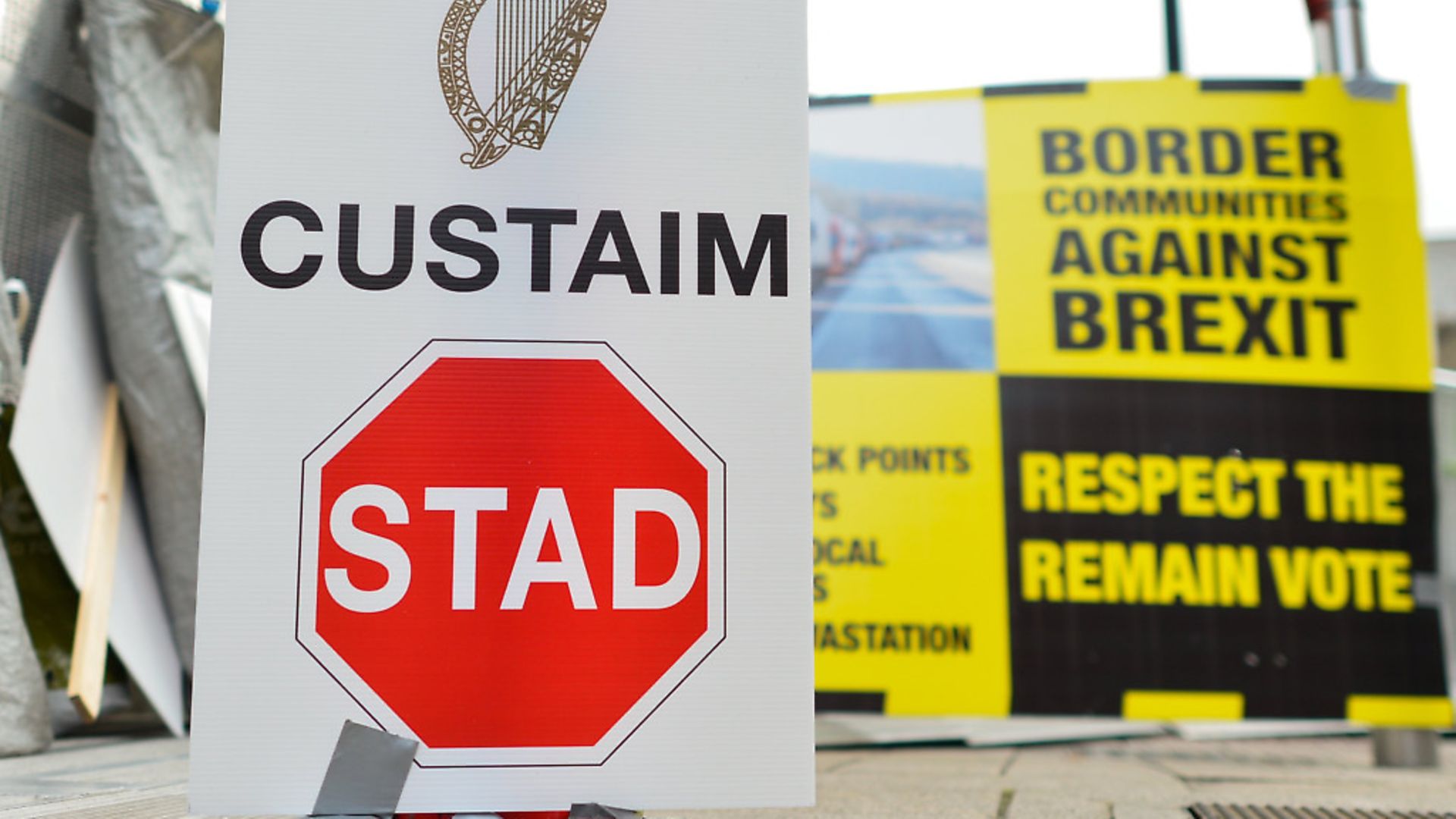
Whatever the outcome of negotiations, Ireland’s foreign minister cannot foresee relations between Britain and Ireland getting better
Like any other human endeavour, politics is subject to the Law of Unintended Consequences. When the people of the United Kingdom voted to leave the European Union in June of last year, I do not think they could have been aware of all the possible consequences, intended or unintended. It will now be up to the negotiators on behalf of the European Union and UK to deal with and, insofar as they can, mitigate these consequences.
Ireland will be remaining in the EU, something which enjoys overwhelming public support. Among the 27 EU member states, to my mind there is no question whatsoever that we will be the most impacted of all. For Northern Ireland, which itself voted to remain but will exit the EU along with the rest of the UK, there is a risk of profoundly negative consequences. The duty of Ireland and the UK, as co-guarantors of the 1998 Good Friday Agreement, is to work within these negotiations to avoid such consequences.
Given the recent history of conflict and division during the years of the Troubles, the day-to-day interconnectedness of life on the island of Ireland that we enjoy in 2017 was unimaginable just 20 years ago, before the signing of the Good Friday Agreement. For example, more than 30,000 people cross the open border every day for work, for school, for university, or to visit family and friends. Specialist Medical services such as cancer care are organised on an all island basis. The food industry North and South is deeply integrated. The list goes on and, put simply, life is normal.
As Ireland’s Foreign Minister I know that getting to that simple but invaluable word ‘normal’ takes a lot of hard work and willingness to compromise – elements which will be needed in the Brexit negotiations.
Hard work has led to an encouraging start – albeit just a start. Both negotiating parties on Brexit, the EU (including Ireland) and the UK have formally highlighted the border in Ireland and the absolute necessity of full respect for every element of the Good Friday Agreement. It is an internationally recognised treaty (registered with the United Nations), which will have to be fully respected in letter and spirit, and even stitched into the fabric of any Brexit agreement. The peace dividend, which has been achieved on the island of Ireland over the past 20 years, must not be jeopardised.
The wider interconnectedness between the UK and Ireland is at a record high, but risks reversal if the Brexit talks don’t succeed as they should. There is 1.2 billion euros per week in trade between the two countries. The UK is Ireland’s biggest export market for a huge range of goods and services. Ireland, despite its relatively small size, is the UK’s fifth largest market. The air route between Dublin and London is the second busiest in the world. Irish visitors spend more in the UK than all but seven other countries. UK visitors only spend more on visits to six other countries than Ireland. Between 500,000 and 800,000 Irish people are resident in the UK. Over 150,000 UK citizens are resident in Ireland. With such deep and valuable connections between the UK and Ireland, the impact of Brexit, and particularly any kind of Hard Brexit, will be highly significant for both Ireland and the UK, to say the least.
In Ireland, we have been looking at, analysing and attempting to mitigate this prospect since before the UK referendum on EU membership. Since the vote, we have been making our case both to UK politicians and officials, and to our EU partners. Ireland has four key priorities: to protect our economy and trade; to protecting the peace process and the Good Friday Agreement; to avoid a hard border between North and South; to maintain the Common Travel Area with the UK; and to have a central and key role in ensuring a strong and prosperous European Union.
Following a major diplomatic offensive since last June by Ireland, all the EU governments and the UK government are now well aware of those priorities, which are more in the order of necessities rather than simple wishes or aspirations for us. This has been shown by their specific referencing in the EU’s guidelines for the Brexit negotiations, and also in the British government’s formal Article 50 letter of notification and its listing of Brexit negotiations priorities.
It is important for the people of the EU, as it is for the people of the UK, that the negotiations are entered into with a spirit of goodwill, and constructive engagement. Ireland hopes that this will result in the UK remaining a close and major trading partner, a partner in peace and security, and a work and holiday destination for Irish people and people across the EU. Given even just the fact that around 3.5 million UK citizens living in other EU states, and with six of the top seven travel destinations for UK citizens being in Europe, the kind of restrictions associated with the concept of a ‘hard’ or disorderly Brexit should be avoided at all costs.
Make no mistake, these negotiations will be very hard and very complex. Both sides are preparing thoroughly and will negotiate firmly. The UK intends to leave the EU and with it leave the Single Market and all that brings. The position around the EU’s Customs Union remains less clear and could also have a major impact, including – if talks on a close and comprehensive trade relationship fail – punishing tariff regimes for UK and EU employers.
I have spent the last 10 and a half months engaging with every foreign minister in the EU, as well as with my UK counterparts David Davis, Boris Johnson and Northern Ireland Secretary of State James Brokenshire and with politicians and diplomats from around the globe, to ensure that they understand Ireland’s position, and unique vulnerability to Brexit. I have also spent a great deal of that time explaining the Irish Government position and strategy to international media. There appears to have been some surprise when, in a recent interview, I described Brexit as ‘a complete mess’. However, I believe that I was simply stating an obvious fact, along with my genuinely held opinion. In its present form, before any deals are concluded, and before the shape of the future EU-UK relationship is decided, Brexit is still very much a ‘mess’. A mess we must now work hard to manage into a workable future.
The UK and Ireland have been EU members together since we joined at the same time in 1973. In that time, the social, cultural, environmental and educational changes have been enormous. The world, during that time, has become ‘globalised’. Even island nations are no longer islands in the sense of being isolated. Communications, and particularly trade have become so interwoven, so international.
I am hopeful that good sense will prevail and agreements will be reached. I do not doubt that both the EU and the UK will survive, and change. A new relationship will be formed. I cannot say, however, that I believe it will be a better relationship for either the EU or the UK. We will all strive for a deal that, hopefully, will be as good as it can be. Achieving this will require creativity and imagination, not least around the unique circumstances on the island of Ireland.
Charlie Flanagan TD is Ireland’s Minister for Foreign Affairs and Trade









